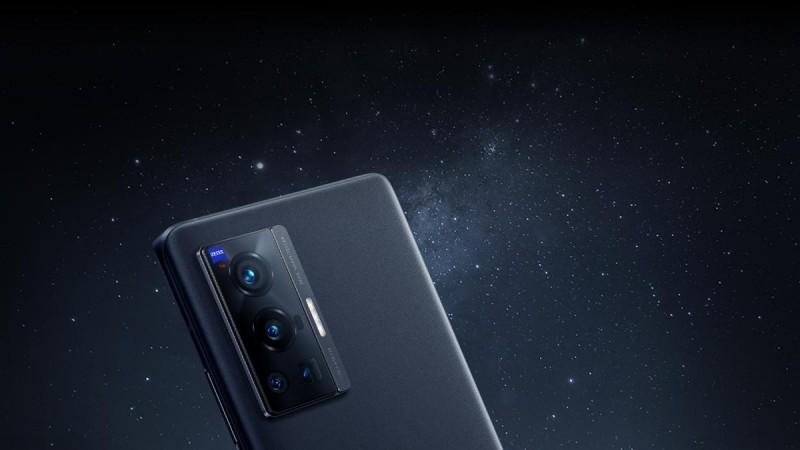First things first! As soon as you open the premium-looking box, you are reminded of what this smartphone represents. “Photography. Redefined.” is the first thing you see when you open the box, and it instantly reminds you that Vivo X70 Pro is all about neat and premium photography.
Along with the smartphone, a TPU or a transparent case, a 44W charger, a C-type cable and good quality Vivo earphones are offered inside the box.
Vivo X70 Pro has curved glass and a glass-metal sandwich design with a beautiful colour that adds more grace to the smartphone. The multicolour design turns slightly greenish and bluish as light falls on it. It is slightly slim and weighs around 190gms.
Now let’s talk about what each side of the smartphone consists of. At the bottom, there’s a speaker grille, a Type C port, a microphone and a sim card tray. The left-hand side is immaculate. The top has a noise-cancelling microphone and an IR blaster. For those who are unaware of what an IR blaster is, it uses electronic bursts of electromagnetic radiations to communicate with everyday devices in your home, like TVs and DVRs. On the right, there’s a volume rocker and a power button.
Vivo X70 Pro has a 6.5-inch FHD+ AMOLED screen with a 120Hz fast refresh rate. Now, what I noticed between Vivo X70 Pro Plus and its younger sibling X70 Pro is that Pro Plus has an LTPO screen, which means that it is an adaptive fast refresh rate screen; from 1Hz to 120Hz will adapt according to your usage. X70 Pro, on the other hand, has the LTPS screen, which does not adapt but has a fast refresh rate.
I have also noticed that a lot of junkware apps like Amazon, Josh, Phonepe, ShareChat, Spotify, and a few others come pre-installed on the smartphone. You can remove or uninstall these apps if they are of no use to you.
The Vivo X70 Pro runs on a customized MediaTek Dimensity 1200 processor. It has a base variant of 8GB+128GB and 12GB+126GB internal. The smartphone has a 4500 mAh battery and comes with fast charging.
Here comes the most exciting part! The Camera. As soon as you flip the phone to the back, you know there is something very interesting, very spectacular about its camera. There is a ZEISS T* logo on the lens, which gives the smartphone a premium feel. Sony cameras often have the T* logo humbly displayed on their lens.
Due to these T* coating, while clicking a portrait, the colours look richer and better. Because of the layer, the ghosting and flares that occur during low-light photos get eliminated.
Not only does the phone allow you to take incredible night images, but there is also a Super Night Video Mode which allows you to take night videos. Isn’t that awesome?
There is a quad-camera setup and neither of those seems like a gimmick, making each one equally useful. All four cameras have optical image stabilization which is pretty rare even in premium and high-end smartphones.
Vivo X70 Pro has 50MP Sony IMX766 wide camera, 12MP ultra-wide camera, 12MP telephoto, and 8MP Periscope camera. On the front, there’s a 32MP selfie sensor.
Vivo X70 Pro has excellent gimbal stabilization, and that is what makes this smartphone stand out. I tested the gimbal mode on this phone, and I loved it to the core. There were very few jerks in the camera even though I was running, and in the walking mode, the camera gave a cinematic experience.
If you are pretty specific about the camera, this is one smartphone you should have on your checkout list. If you can get your hands onto Vivo X70 Pro in a store or somewhere, check the specifications out yourself, and you would definitely feel the premium quality that the smartphone offers.



